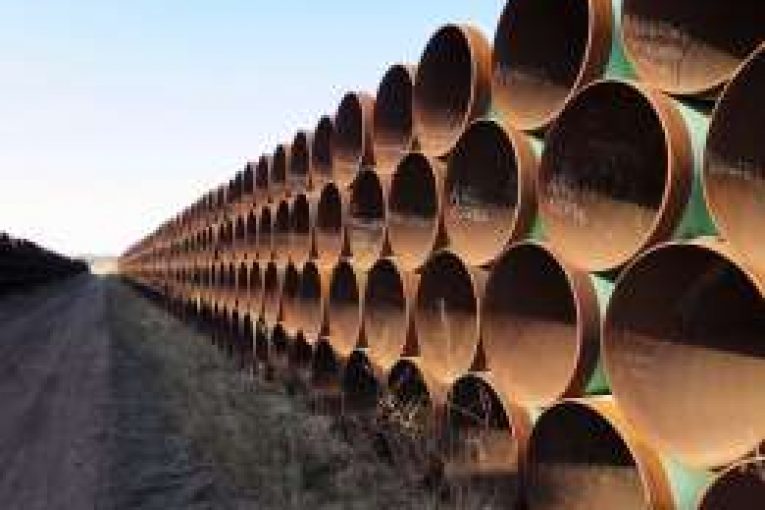
LINCOLN, Neb. – Final hearings on the controversial Keystone XL oil pipeline began here Monday with testy exchanges between a lawyer for Nebraska landowners who oppose the project and a company executive and a local economist whose studies tout the benefits of the venture.
The Nebraska Public Service Commission hearings are expected to last five days and pose the last major regulatory hurdle for proponent TransCanada Corp. in its nine-year quest to build the US$8 billion pipeline, which would deliver oil from Alberta to Texas.
In tense exchanges, Dave Domina, the landowners’ attorney, grilled a TransCanada executive and an economist about the benefits of Keystone XL and asked what would happen to the pipeline after its 50-year commercial life.
“Do we have to clean up TransCanada’s abandoned pipeline?” Domina asked company executive Tony Palmer.
Palmer said the company would pay for clean-up and restoration costs but might seek compensation from anyone who damages the pipeline. He said it’s “very rare” to remove pipelines that have outlived their useful life.
Domina also questioned the rigour and methods used by Ernest Goss, an economist at Creighton University in Omaha, in studies supporting the economic benefits of Keystone XL. “Mr. Goss, you didn’t cite a single peer-reviewed paper in your work, did you?” Domina asked.
Goss answered pointed questions – to which TransCanada lawyers frequently objected on various grounds, including that they were argumentative – about how he prepared his 2013 and 2017 reports on the economic benefits of the line, and said that he was confident in his work.
Another company official, Paul Fuhrer, said the pipeline would be “puncture resistance” if struck by farm equipment. But he declined to say under questioning whether the commission should require at least four feet of topsoil over the pipe as a condition of approval.
“The leadership of our company would need to weigh in on that,” he said.
Despite the exchanges, the open session was quiet, attended by roughly 60 people. Officials have prepared for a far more fractious hearing process with a large police presence inside and outside the venue.
On Sunday, protestors marched through downtown Lincoln in opposition to the pipeline. But a day later the streets surrounding the hearings were quiet while police officers were posted on each corner of the hotel.
Nebraska’s five-member public service commission is expected to give its decision on whether the pipeline is in the public interest by November. The Calgary-based company already has approvals from other states Keystone XL crosses and from U.S. President Donald Trump.
The arguments of opponents are constrained by the rules of commission, which is not permitted to consider the risk of oil spills because the route already has a federal environmental permit. Opponents – including landowners in attendance Monday – instead argue the jobs are temporary and the risks of the pipeline to local industries like cattle ranching are too great.
If approved in Nebraska, TransCanada could use eminent domain laws to gain access to opposed landowners’ property.
The line would deliver 830,000 barrels of mostly heavy oil per day from Alberta to Texas, easing a pipeline crunch facing Canadian oil producers and providing a consistent supply to U.S. refiners.
Last month, the company publicly called for bids on the pipeline, asking oil producers to commit to ship on the proposed route, a move that was necessary because the pipeline had previously been rejected by former U.S. president Barack Obama.
TransCanada and Goss are expected to testify that the project will create thousands of construction jobs and millions in revenue for various levels of government.
In approving the pipeline, Trump said the project would create 28,000 jobs nationwide, but a 2014 State Department study predicted 3,900 construction jobs and 35 permanent jobs.
The hearings currently under way are focused only on the northern leg of the pipeline, between Alberta and Steele City, Neb. The southern leg of the pipeline is already in service, shipping oil from Nebraska’s southern border to Gulf Coast refineries.
Financial Post with files from The Associated Press
You can read more of the news on source
